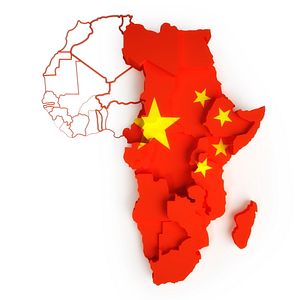There has been some speculation that China might be losing some of its oomph in Africa. According to Xinhua, Chinese investments on the continent have fallen by 40 percent in 2015. This has been due to a number of reasons, “including the slack global economic recovery, international commodity price fluctuations and the Ebola outbreak,” according to Chinese Ministry of Commerce (MOC) spokesman Shen Danyang.
While the MOC is optimistic that these figures will recover by 2020, Chinese businesses and citizens are facing another kid of threat as well. As both Shannon Tiezzi and myself have reported for The Diplomat, Chinese citizens recently been killed in Syria and Mali by jihadist terrorists.
The three Chinese citizens murdered at the Radisson Blu hotel in Bamako raise some interesting issues for Beijing’s engagement with Mali. All three, plus another four Chinese citizens who were rescued from the hotel, were senior employees with the China Railway Construction Corporation (CRCC), a state-owned firm.
This is indicative of China’s presence in the region. Both CRCC and the China Railway Engineering Corporation (CREC) are involved in massive infrastructural projects in and around the region. Mali has been trying to diversify its economy from the exports of its natural resources, notably gold. A crucial part of this involves investments into Mali’s fledgling railways system. Considering Mali’s landlocked geographical position, this is especially urgent with regards to extending and repairing its rail links to the surrounding coastal states of Senegal and Guinea.
According to a report from Stellenbosch University in South Africa, China signed a $11 billion investment deal with Mali last year, $9.5 billion of which is slated for railway construction and repairs. Of this, $8 million is going to CREC’s construction of a 900-km railway connecting Bamako to the port capital of Conakry in Guinea. The remaining $1.5 billion is slated for CRCC’s upgrade of the existing but dilapidated 1,230-km railway between Bamako and Dakar, which currently functions as landlocked Mali’s main link to the sea.
The improved transport links would attract investors to under-explored resources, such as iron ore, bauxite, and uranium, that are bulkier and more costly to transport than gold. “The infrastructure will enable Mali to end its dependency on gold,” said Lassana Guindo, an adviser at the Malian Ministry of Mines. According to Reuters, Chinese company CGC Overseas Construction Group plans to exploit Mali’s 100 million ton iron-ore deposit at Bale, 220 km (136 miles) west of Bamako. “The company will build a steel plant and also construct a 400 megawatt power plant,” said Ousmane Mamadou Konaté, a technical adviser on a Malian delegation to China in 2014.
Aside from Bale, other iron ore deposits in the same basin are estimated to hold some 400 million tons and would all benefit from the rail project, Guindo said. Despite decreased global demand, China is still the single-largest importer for most of these resources.
Furthermore, it is believed that Mali might contain large stores of uranium and hydrocarbons. Several firms have been searching for uranium in the country’s southwestern region, and initial reports are optimistic. Until the civil war broke out in 2013, several western companies were prospecting for oil in Mali’s northern regions. Both of these are resources that China requires for its economic growth.
The Radisson Blu attack might have implications for China’s presence and ambitions in the country. During Mali’s civil war against a combination of Tuaregs, Islamists, and former fighters for Muhammar Gaddafi’s regime in Libya, Chinese economic interests in the country were mostly unharmed, being located in the south of the country. The attack in Bamako shows that China isn’t immune to the effects of terrorism, even when Chinese citizens probably aren’t the primary target. Western citizens, and particularly French and American ones, are more at risk in the current Malian context.
However, this does not mean that attacks specifically targeted at Chinese interests in Mali can’t happen in the future. There is a precedent for this; from 2007 to 2009, the Sudanese rebel group Justice and Equality Movement carried out several attacks on Chinese installations, saying that “We don’t want China. We want to expel them. We have the means … We are preparing new attacks.”
China’s position in Sudan was and remains somewhat unique due to the fact that Khartoum has been subject to Western sanctions since 1997. However, there is an interesting similarity between China’s presence in Sudan and Mali as well. Two of the People’s Liberation Army’s largest contingents are stationed in Mali and Sudan/South Sudan; they are the only Chinese United Nations forces with combat troops deployed. There has been reports that one of the objectives of the PLA forces in Sudan/South Sudan is to protect China’s economic interests in the region. If true, that could be an indicator of one of the motives behind China’s contingent operating within the United Nations Multidimensional Integrated Stabilization Mission in Mali (MINUSMA).
If the Radisson Blu attack is an indicator, terrorism in Mali is far from defeated. China’s presence in Mali might be an interesting test case as to how Beijing’s African economic and security policies will evolve in the future.

































